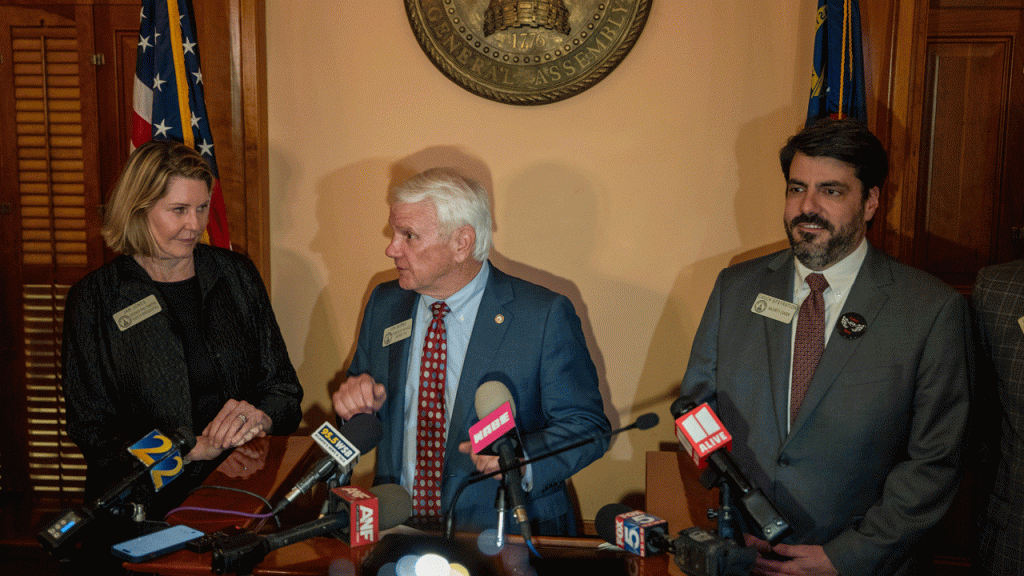The 2024 legislative session in Georgia highlighted the differing approaches between Republicans, with Democrats unable to advance their top priorities. Republicans focused on tax cuts, immigration control, and pay raises for teachers and state employees, hoping these measures will secure them victory in the upcoming legislative races. The session also saw jockeying for the 2026 statewide elections, with Lt. Gov. Burt Jones potentially positioning himself to run for governor amidst a push by many GOP lawmakers to please their base. Despite some unity on certain issues, there was still a power struggle between the House and Senate, with conflicts arising over various measures.
The House and Senate continued to clash during the legislative session, disregarding bills passed by the other chamber and struggling to find common ground on key issues. Sharp disagreements were evident, leading to decisions being made in the final hours of the last legislative day. The tension between the two chambers was particularly elevated this year, with challenges arising on various fronts. Efforts to pass initiatives like compensating the exonerated and banning certain drugs or education policies faced roadblocks and failed to gain traction, showcasing the divisions within the legislature.
House Minority Whip Sam Park described the 2024 session as a battle between the far-right Senate and the moderate Republican House, with the House prevailing by stopping many culture war issues pushed by the Senate. While the House was able to prevent the passage of controversial bills targeting transgender youth and other conservative measures, the Senate still managed to push through its priorities, including bills on cash bail, school vouchers, and parental consent for social media use. This highlights the ongoing ideological divide within the Republican Party in Georgia, with different factions vying for control and influence in the legislative process.
Despite efforts by Democrats to expand Medicaid and provide health coverage to lower-income adults, they faced setbacks and frustrations throughout the session. Republicans voted down a bill that would have expanded Medicaid, instead opting to support Gov. Kemp’s Pathways program, which offers insurance based on work or study requirements. Outgoing House Minority Leader Gloria Butler criticized the deliberate health care policy failures by Kemp and Republican leadership, emphasizing the ongoing need for Medicaid expansion in Georgia. Democrats expressed disappointment and frustration at the lack of progress on key health care issues during the session.
Looking ahead, the political landscape in Georgia remains complex, with ongoing conflicts and divisions within the Republican Party and limited success for Democratic initiatives. Republicans are focusing on tax cuts, immigration control, and other measures to appeal to their base and secure victory in the upcoming legislative races. The power struggle between the House and Senate continues, with tensions rising over key policy decisions. Despite some victories for both sides, the session ultimately showcased the challenges and complexities of governing in a deeply divided political environment.
As Georgia prepares for the 2026 statewide elections, the political dynamics within the legislature are likely to intensify, with shifting alliances and competing priorities shaping the legislative agenda. The ongoing battles between different factions within the Republican Party and the continued frustration of Democrats highlight the complexities of governance and policy-making in the state. Ultimately, the 2024 legislative session in Georgia underscored the contrasting approaches to governing within the Republican Party and the ongoing challenges of addressing key policy issues amidst a deeply polarized political landscape.















